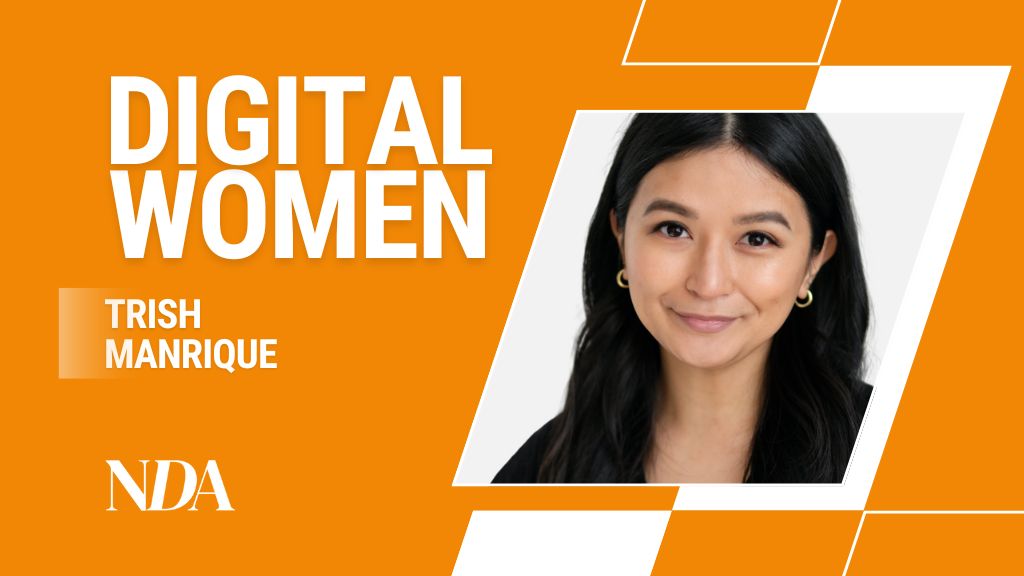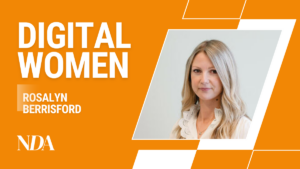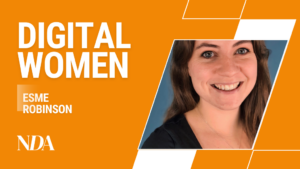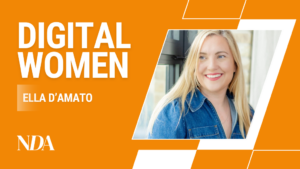Trish Manrique is the Director of Marketing at Aditude. During her career to date, she has worked at ad tech vendors, Sortable and Freestar, before moving to Aditude in July 2023.
What is the biggest opportunity for women in your sector of the digital industry today?
The biggest opportunity for women in the programmatic advertising sector today lies in leveraging our unique perspectives to drive innovation and inclusivity. As this sector continues to expand and evolve, there is a growing demand for diverse voices and ideas. It’s important to remember that and take advantage of it.
LinkedIn is a great platform for women to share their perspectives and build themselves up. Personally, I enjoy following female leaders and hearing their thoughts on industry topics such as cookie deprecation and MFA to their insights on being a working mom or a woman in our field. Women play a pivotal role in shaping the industry’s future and driving impactful change. I hope women continue to share their voices and ideas in the industry, and that we only continue to get louder and louder.
What is the biggest challenge to you as a woman in the digital industry, and how are you overcoming it?
The biggest challenge as a woman in the digital industry is breaking into leadership roles and ensuring female voices are heard and visible. This sector has historically been dominated by men, creating barriers for women to advance and contribute meaningfully. The prevalence of all-male panels and events tailored primarily to men can make the industry feel like a boys’ club.
To overcome these challenges, I’m actively working to establish myself as a leader who advocates for inclusivity. This ranges from hiring practices on my team to planning events that are geared to our female clients. This challenge is ongoing and I hope by championing women’s voices and pushing for change (even if it’s small steps), I aim to pave the way for greater female representation in the industry.
What three things could employer companies do to make the digital industry better for women?
Three things employers can do to make the digital industry better for women are:
- Implement inclusive hiring practices that actively recruit and promote women at all levels of the organisation.
- Provide mentorship programs and professional development opportunities specifically tailored to women in the digital field.
- Empower women in amplifying their voices in the industry through speaking opportunities, thought leadership platforms, and media engagements.
What support structures and organisations are most important and effective to you as a woman in the digital industry?
The most important and effective support structures for me in the digital industry are the amazing women I’ve met over the years and continue to connect with. They’re the people I go to for advice, vent my frustrations, brainstorm wild ideas, and share my experiences. These connections provide invaluable emotional support, allowing me to decompress and gain perspective. Beyond emotional support, these women serve as powerful resource for professional development, offering guidance, and collaboration opportunities that enhance my skills and confidence.
Engaging with like-minded women in the industry not only fosters a sense of camaraderie but also strengthens my resilience and determination to navigate challenges and seize opportunities. It’s within these supportive communities that I find inspiration, empowerment, and a shared commitment to advancing women’s representation and leadership in the digital landscape.
What is the biggest misconception about women and by women in the digital industry?
I believe one of the biggest misconceptions about women in the digital industry is the assumption that technical prowess is the sole measure of success. While technical skills are important, women bring a range of valuable attributes to the table, including creativity, empathy, and strategic thinking. Breaking this misconception is essential for creating a more inclusive and diverse industry culture that fully values and leverages women’s contributions.










